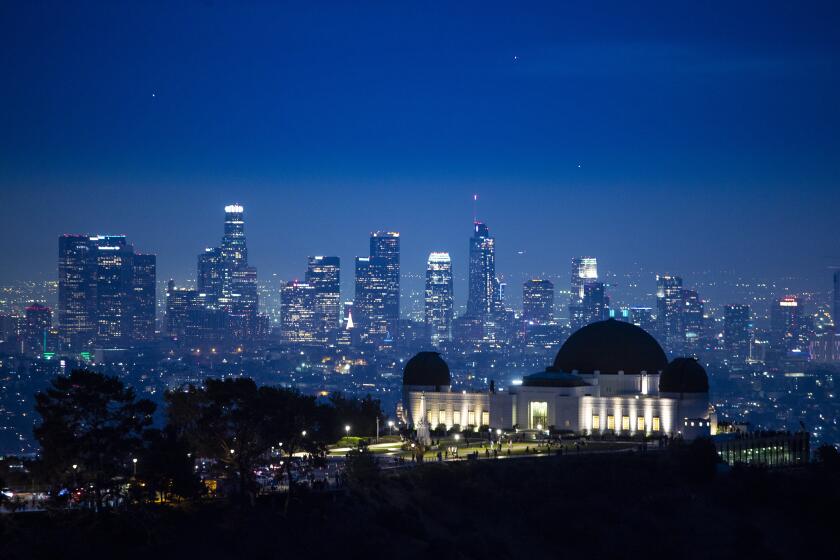Southern California activists and attorneys begin to strategize after Supreme Court affirms parts of Trump’s travel ban
- Share via
After President Trump enacted a travel ban against a number of Muslim-majority countries in January, protesters took to the streets. People with visas and green cards found themselves detained or facing deportation and attorneys camped out at airports to provide free legal counsel.
Almost five months later, the Supreme Court’s affirmation of parts of the ban involving six countries probably will have a different impact.
Although activists and Muslim leaders are bracing themselves for some problems and are already mobilizing protesters, the early reaction has been subdued as they and immigrant rights advocates try to make sense of the high court’s ruling, which will be implemented starting Thursday morning.
A few hours after the Supreme Court cleared the way for parts of Trump’s travel ban to take effect pending the justice’s consideration in the fall, the Los Angeles area chapter of the Council on American-Islamic Relations took steps to spread the word about the decision.
Its offices were supposed to be closed Monday in commemoration of Eid al-Fitr on Sunday — the Muslim holiday that marks the end of the fasting month of Ramadan. Instead, CAIR sent an email blast with a fact sheet on what the travel ban means to the thousands of Muslims they serve in Southern California.
“Whenever you have a Muslim ban like this that’s targeting Middle Eastern and South Asian communities, it’s going to have a high impact in Southern California,” said Masih Fouladi, CAIR-LA advocacy manager. “A lot of refugees settled down here. It’s going to disproportionately impact the L.A. community.”
He’s bracing for an uptick of hate crime incidents, which he said tends to happen after anti-Muslim remarks or policies take place.
“That brings a lot of fear into the community,” he said.
Christopher Lapinig, a registered legal services attorney with Asian Americans Advancing Justice-Los Angeles, said there will be a contingent of attorneys at Los Angeles International Airport and others throughout the nation who will remain vigilant on how the narrowed travel ban will be implemented by U.S. Customs and Border Protection officials.
The ban will still not apply to any foreigners who have a “bona fide relationship” with a person or entity in the U.S., such as relative, a university or employer.
“But we are concerned on exactly how this standard will be implemented by CBP officers and other Department of Homeland Security officials at airports and other ports of entry around the country,” said Lapinig, who was part of a group of attorneys who gathered at LAX after the first travel ban. “The idea of testing who has a bona fide relationship with people in the U.S., it’s something that leaves a lot of room for discretion in terms of interpretation. We’re worried about inconsistencies in the way it is going to be applied.”
Reshma Shamasunder, a deputy director for National Immigration Law Center in L.A., said her group and others will monitor the situation and expect protests to take place regardless of how the ban is implemented.
“We remain concerned over any bans at all. It’s discriminatory and unconstitutional and contrary to our fundamental values of fairness and equality,” she said. “We are absolutely going to be watching.
Follow Cindy Carcamo on Twitter @thecindycarcamo
More to Read
Sign up for Essential California
The most important California stories and recommendations in your inbox every morning.
You may occasionally receive promotional content from the Los Angeles Times.











